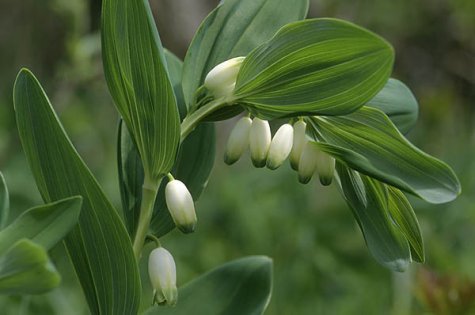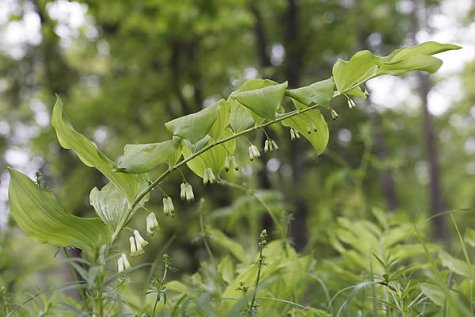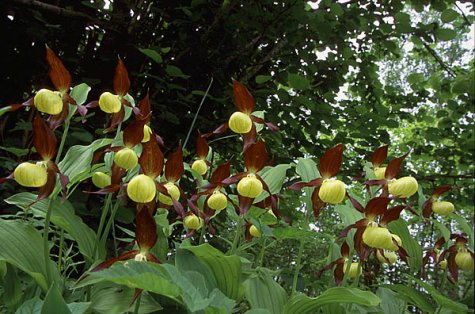Solomon's seals flowering
Photos: Arne Ader
Translation: Liis
The Solomon’s seals are relatives of the lily-of-the-valley and belong to the lily family; all are in flower now.
Angular Solomon's seal
|
Angular Solomon's seal
|
Harilik kuutõverohi
|
|
|
|
The stem is strongly curved and feels angular between your fingers; the leaves remind of the leaves of the lily-of-the-valley and from the axils of the leaves single greenish-white elegant flowers hang. Habitats are sandy pine forests or mixed forests. They can often be found together with lilies-of-the-valley. In the soil the Solomon’s seal has vigorous, fleshy rhizomes and so forms large colonies.
Solomon's seal
|
Solomon's seal
|
Mitmeõieline kuutõverohi
|
|
|
|
It is more common in the North and West Estonian deciduous and broadleaved forests or wooded meadows on calcareous soils. Sometimes it accompanies the lady’s slipper /Cypripedium calceolus/ – the largest European orchid, also flowering now in similar habitats.
The Solomon’s seal has strong, beautifully arched stems, reaching up to one metre in height; On the rounded stem there are two regularly arranged rows of large oval leaves. In the axils of the leaves hang oblong white bell-like flowers, looking as if they were made of wax, and decorated with a green line along the lower edge. The flowers of the angular Solomon’s seal are arranged singly, the Solomon’s seal has two up to four together.
Lady's slipper in the Laelatu meadow











